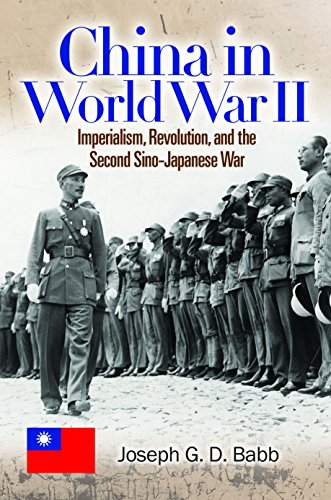Items related to China in World War II: Imperialism, Revolution, and...

Synopsis
Mao Zedong and the Communists and Chiang Kai-shek and the Nationalists fought from 1927 until 1949 in an internecine struggle for control of China, and the fight against Japan in World War II was a catalyst for the expanded civil war that followed.
Imperialism, revolution, and war with Japan are three vectors critical to understanding China today. The leadership of the People's Republic of China from 1949 until now has been determined to a great extent by the "Century of Humiliation," recognized as 1839–1949, during which time foreign powers occupied and pillaged this great civilization. This book provides background, context, and summaries of military campaigns fought by the Chinese from 1937 to 1941, when they were virtually alone in the war, and from 1942 to 1945, when the United States and Great Britain joined them as allies.
In addition to providing a detailed and engrossing narrative of China's internal struggles and external prerogatives during the Second World War, the book analyzes new scholarship on key battles, re-evaluates the performance of Chiang Kai-shek and other key actors, and argues that China's role in the Allied victory in the Pacific has been underplayed.
"synopsis" may belong to another edition of this title.
About the Author
Joseph G. D. Babb, PhD, is associate professor at the United States Army Command and General Staff College. He has authored and taught courses on Chinese military art and history for 25 years.
"About this title" may belong to another edition of this title.
- PublisherPraeger Pub Text
- Publication date2019
- ISBN 10 1440846901
- ISBN 13 9781440846908
- BindingHardcover
- LanguageEnglish
- Number of pages270
(No Available Copies)
Search Books: Create a WantCan't find the book you're looking for? We'll keep searching for you. If one of our booksellers adds it to AbeBooks, we'll let you know!
Create a Want